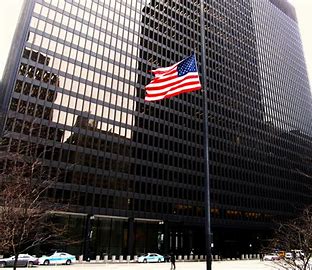A federal judge for the Northern District of Illinois found that the former employee of a Chicago-based technology company can continue to pursue religious discrimination claims stemming from his termination after expressing issues with Diversity, Equity, and Inclusion (DEI) training and Pride Month events that conflicted with his religious beliefs.
Kyle Pumariega, a devout Christian, worked remotely from Florida for the Illinois-based company Basis Global Technologies, Inc. (Basis). In November 2022, Pumariega received an email from Basis’ DEI Department announcing a mandatory training on December 6, 2022. Pumariega attended the training during which presenters discussed gender identity, sexuality, sexual orientation as a scale, use of inclusive language, and preferred pronouns. In February of 2023, Pumariega submitted anonymous feedback to the DEI team on the December training explaining that the topics were inappropriate for the workplace. In a May 2023 meeting with his supervisor, Pumariega expressed that the mandatory training conflicted with his religious beliefs and requested an accommodation to skip future mandatory DEI trainings. On June 1, 2023, the DEI team announced various activities for Pride Month, including Drag Brunch Trivia, which Pumariega believed were mandatory. On June 6, 2023, Pumariega told Basis’ Talent Relations Specialist that the planned Pride Month activities conflicted with his religious beliefs, and he should not be required to attend. Additionally, Pumariega requested a meeting with Basis’ executive team and DEI team to discuss his view that such events were inappropriate. On June 15, 2023, Pumariega was fired.
In his Complaint, Pumariega alleged a variety of religious discrimination claims in violation of the Civil Rights Act of 1964 (Title VII), Florida Civil Rights Act (FCRA), and Illinois Human Rights Act (IHRA). In a written opinion, U.S. District Judge Lindsay C. Jenkins granted in part and denied in part Basis’ motion to dismiss Pumariega’s complaint entirely for failure to state a claim. “Taking Pumariega’s allegations as true, Basis knew about his Christian beliefs and fired him days after he complained about DEI training on that basis and requested an accommodation,” Jenkins wrote. “At the motion to dismiss stage, that is sufficient.” Jenkins also found Pumariega adequately pled a claim of retaliation. In support of her finding, Jenkins cited Tomanovich v. City of Indianapolis, 457 F.3d 656, 663 (7th Cir. 2006), which holds that an official complaint qualifies as a statutorily protected activity if the complaint “indicates the discrimination occurred because of sex” or another protected class. Jenkins noted that Pumariega adequately pled that, during the May 2023 meeting with his supervisor and the June 6 call with Basis’ Talent Relations Specialist, he explained his objection to DEI events was founded on his membership in a protected class — being Christian. Pumariega’s remaining claims were dismissed upon the Court’s finding that his wrongful termination claims were duplicative of his religious discrimination claims. Jenkins noted that Pumariega did not notify anyone at Basis of his religious beliefs prior to the DEI training, which she found fatal to his failure to accommodate claim. Additionally, Jenkins dismissed all Pumariega’s claims under the IHRA finding that, as a remote worker based in Florida, there was “no support for the inference that he ‘perform[ed] work in Illinois,’ as required by the plain text of the statute.”
There are several steps employers should take moving forward to protect their businesses. Employers who have knowledge of an employee’s membership in a protected class such as race, color, sex, national origin, disability, or religion, should be proactive in preventing any adverse workplace action that may be viewed as discriminatory or retaliatory toward a statutorily protected activity. Additionally, employers should train employees on Equal Employment Opportunity (EEO) laws as well as company-specific EEO policies to promote an environment of respect for differences and professionalism. Finally, employers should consult with legal counsel to ensure that their action or inaction does not violate any laws or regulations.
As always, should you have questions or need assistance with compliance, please contact Michael Airdo at mairdo@airdowerwas.com.


